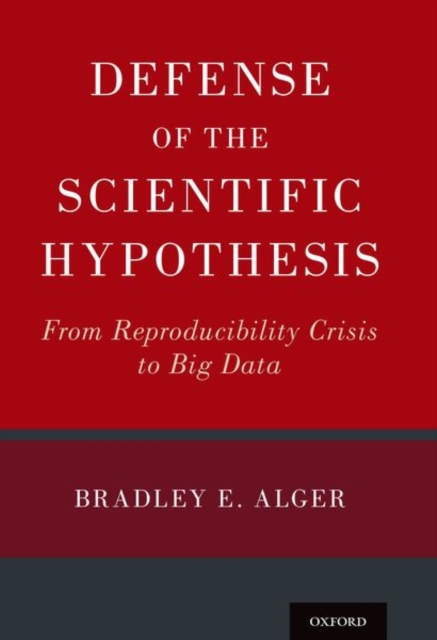
Defense of the Scientific Hypothesis : From Reproducibility Crisis to Big Data Hardback
by Bradley E. (Professor Emeritus, Department of Physiology, Program in Neuroscience, University Alger
Hardback
Description
Defense of Scientific Hypothesis: From Reproducibility Crisis to Big Data sets out to explain and defend the scientific hypothesis.
Alger's mission is to counteract the misinformation and misunderstanding about the hypothesis that even seasoned scientists have concerning its nature and place in modern science.
Most biological scientists receive little or no formal training in scientific thinking.
Further, the hypothesis is under attack by critics who claim that it is irrelevant to science.
In order to appreciate and evaluate scientific controversies like global climate change, vaccine safety, etc., the public first needs to understand the hypothesis.
Defense of Scientific Hypothesis begins by describing and analyzing the scientific hypothesis in depth and examining its relationships to various kinds of science.
Alger then guides readers through a review of the hypothesis in the context of the Reproducibility Crisis and presents survey data on how scientists perceive and employ hypotheses.
He assesses cognitive factors that influence our ability to use the hypothesis and makes practical and policy recommendations for teaching and learning about it.
Finally, Alger considers two possible futures of the hypothesis in science as the Big Data revolution looms: in one scenario, the hypothesis is displaced by the Big Data Mindset that forgoes understanding in favor of correlation and prediction.
In the other, robotic science incorporates the hypotheses into mechanized laboratories guided by artificial intelligence.
But in his illuminating epilogue, Alger envisions a third way, the Centaur Scientist, a symbiotic relationship between human scientists and computers.
Information
-
Available to Order - This title is available to order, with delivery expected within 2 weeks
- Format:Hardback
- Pages:448 pages
- Publisher:Oxford University Press Inc
- Publication Date:24/10/2019
- Category:
- ISBN:9780190881481
Information
-
Available to Order - This title is available to order, with delivery expected within 2 weeks
- Format:Hardback
- Pages:448 pages
- Publisher:Oxford University Press Inc
- Publication Date:24/10/2019
- Category:
- ISBN:9780190881481






